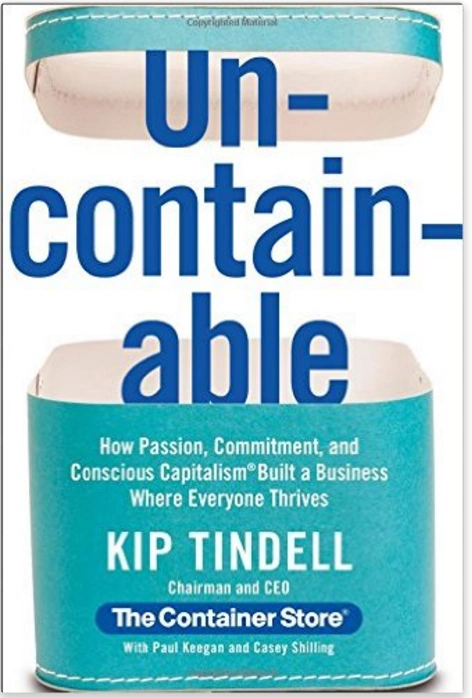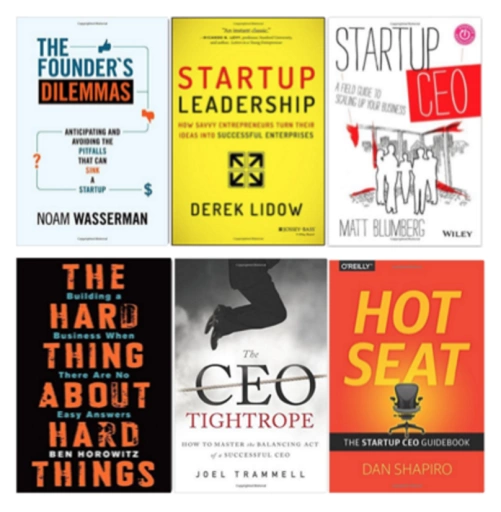 “It was a powerful moment for me personally because it was the first time I had ever attempted to articulate my deepest, most heartfelt beliefs about life and business before a large group. And it was a crucial moment for The Container Store because that’s when our cherished Foundation Principles were born.” (“Uncontainable: How Passion, Commitment, and Conscious Capitalism Built a Business Where Everyone Thrives” – Kip Tindell – page 124)
“It was a powerful moment for me personally because it was the first time I had ever attempted to articulate my deepest, most heartfelt beliefs about life and business before a large group. And it was a crucial moment for The Container Store because that’s when our cherished Foundation Principles were born.” (“Uncontainable: How Passion, Commitment, and Conscious Capitalism Built a Business Where Everyone Thrives” – Kip Tindell – page 124)
Great book. Powerful quote. Why did this quote resonate with me so much? This was what I asked myself as I read Kip’s book.
Now, I think I have an answer.
If you stand for something, you won’t fall for anything. Strong values knit together strong organizations.
This isn’t the first time I’ve thought about this. My first professional career as a U.S. Army officer was sustained by these values: Loyalty, Duty, Respect, Selfless Service, Honor, Integrity, and Personal Courage. Later, companies I worked for had varying degrees of “Foundation Principles,” as Kip Tindell calls them in his company.
But, what struck me about Kip’s quote and The Container Store’s story is WHY these principles were created. The company was growing, fast. And, when they were opening their seventh store in Houston, Texas, things started falling apart. Kip writes, “At our other stores, nearly everyone had worked directly with Garrett and me or had been trained by someone who had.” (page 126)
There it is.
We Founding CEOs create the culture of our companies by two primary activities. We hire and we train. In the beginning of your entrepreneurial journey, you personally do more of this…purposely. You own the culture. And, the culture is created and sustained by hiring and training. But, what happens when you and possibly your co-founder can no longer do that all by yourselves? That’s when the wheels start to fall off as they did for Kip and his co-founder Garrett in 1988.
The Connection: Growth & Principles
So, what is a Founding CEO to do? How can you sustain your growth, continue the behaviors and attitudes that has fueled your company’s success, and avoid having to be everywhere all the time?
You capture and codify the unique values and principles that guide your team in your absence.
I personally think it’s hard to do when you first start out. I tried to do that when we first formed our company and it just wasn’t the same. But, there comes a time when your personal interventions exceed your organization’s needs. That’s what happened at The Container Store. Once Kip and his team established their “Foundation Principles” and began to integrate them in their company, it helped fuel the company for their next level of growth. He writes, “Our Foundation Principles reveal our higher purpose by motivating our employees to do whatever they can to help the company thrive.” (page 132)
This isn’t an exercise in wordsmithing. This is an introspective look into what makes your company great. It’s about what values sustain. It’s about what you stand for.
Over the years I have seen what happens when this key activity never gets done. You hire the wrong people. You reward the wrong behaviors. You align with the wrong investors. You agree to the wrong mergers. And, worse, the company falters and fails.
When you don’t know what you stand for, you stand for everything and nothing all at the same time.
Develop Your Principles
I’ve participated in the development process of core values/principles for client companies. It can be both exhilarating and frustrating. Allow me to help. Here are my five best practices to help you create your “foundation principles.”
- INVITE a cross section of the company. Don’t do it yourself. Bring together some of your best people whose behaviors and results match some of the ideas that are floating around your head. People commit to what they co-create.
- TRY not to read through a bunch of other companies’ value and principle statements. I have found this to be counter-productive. It just fills your head with others’ words when you should be filling your head with events, behaviors, actions, and people that embody your company.
- GIVE yourself and your company the chance for these principles to develop organically. Scheduling a weekend off-site at a cool retreat location is great. Just try to avoid the temptation to pump out a list of values or principles that are driven by time constraints. There are feelings involved that just can’t be rushed. A Friday to Sunday deadline won’t serve you well.
- USE an outside facilitator, if you can. There’s a big difference between an facilitator and a consultant. You want someone who can guide the process forward and serve as an unbiased mirror reflecting what he or she hears, not what he or she hopes.
- COLLECT stories. The emotion attached to stories are the life blood of your organization. They alone will inform significant dimensions of your values or principles.
What are your company’s values?
What do you stand for?
Will you stand for something, or fall for anything?


